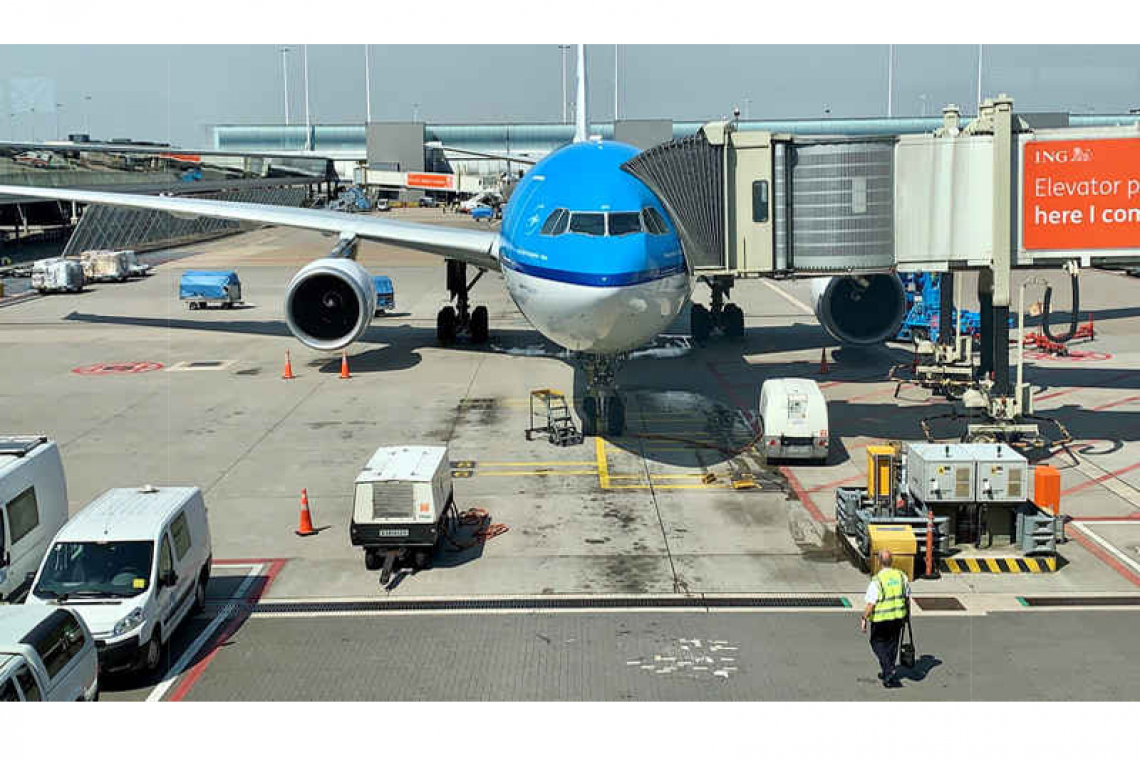THE HAGUE--The negative travel advisory of the Dutch government has been reinstituted for St. Maarten, Aruba and Bonaire. Curaçao was already on orange and on Wednesday evening, the three other islands became the same colour code.
Dutch Prime Minister Mark Rutte announced during a plenary debate about the coronavirus crisis and the latest lock-down measures on Tuesday evening that the travel advisory for Aruba, Bonaire and St. Maarten would go from yellow (safety risks) to orange (only essential travel).
“I have to inform you that unfortunately today we had to decide to put the travel advisories on orange. Not because of the situation on the islands, but because of the big problems in the Netherlands. We cannot have people travelling to the Caribbean part of the Kingdom. We want to further implement the number of travel restrictions in this extraordinary phase of the lock-down,” said Rutte.
The prime minister noted that the other islands, Curaçao, St. Eustatius and Saba were already orange due to the local epidemiological situation (Curaçao) or for prevention purposes (St. Eustatius, Saba). “Curaçao was already orange due to the high number of infections, and Saba and St. Eustatius because they don’t want us.”
The negative travel advisory would go into effect at 8:00pm Dutch time, confirmed the Ministry of Foreign Affairs. Dutch travellers who are already on the islands can complete their vacation and don’t have to quarantine upon return. Also, no negative polymerase chain reaction PCR test result is necessary for persons travelling from the islands to the Netherlands.
With Aruba, Bonaire and St. Maarten, as well as the Canary Islands turning orange, the Dutch negative travel advisory is now in effect for the entire world until at least mid-March. Although it is an urgent advisory, the Dutch government is not closing the borders, forbidding people to travel or ceasing air traffic.
Rutte had a stern message for persons who still decided to travel during the lock-down. “You are asocial if you are so shameless to go on winter sports vacation or to take a flight while you have no business there. There is a negative travel advisory in effect for a reason.”
During his press conference on November 3, Rutte had declared that travelling within the Kingdom remained possible, as long as the islands had code yellow. This message resulted in large numbers of Dutch residents booking a vacation to Curaçao, and also to Aruba and Bonaire when these islands became yellow a few days later. St. Maarten only became yellow on November 28.
The switch to code orange is a blow to the scores of Dutch residents, including those of Caribbean descent who were planning to travel to the islands for the Christmas holidays. The negative travel advisory also took hotels and other tourism-related businesses on the islands by complete surprise.
Dutch tour operators immediately ceased to offer vacation packages to the islands until mid-March. Royal Dutch Airlines KLM and TUI continue flying. Both airlines had added flights to their itinerary for the holiday season.
The sector organisation of Dutch tour operators ANVR urged the Dutch government to restrict the sale of tickets-only travel in order to prevent Dutch tourists from circumventing the negative travel advisory by booking directly at the airlines and hotels. Government intends to consult the airlines, but is not forbidding the sale of tickets.
Aruba Prime Minister Evelyn Wever-Croes responded with comprehension for the Dutch decision. She said that State Secretary of Home Affairs and Kingdom Relations Raymond Knops informed her of the bad news. She explained that it was not Aruba’s fault, but that the Netherlands was concerned about its own, internal situation and that a clear message needed to be relayed to the Dutch population. “We lament that this decision was taken for Aruba, but it is perfectly understandable,” she said.
As for the Caribbean Netherlands, Minister of Infrastructure and Water Management Cora van Nieuwenhuizen sent a letter to the Dutch Parliament on Monday to confirm that the flight prohibition remained in effect for Bonaire, St. Eustatius and Saba.
The prohibition still applies for flights from the European Union, England, the entire American continent, with the exception of the Dutch Caribbean countries, Germany, St. Kitts & Nevis, Antigua & Barbuda.
Various Dutch ministries, in consultation with the islands, are still working on implementing an instrument that will succeed the flight prohibitions. “This alternative instrument will increase the possibility to travel to the Caribbean Netherlands while at the same time preventing a large-scale import of COVID-19 infections.”
Because the implementation of this instrument was not ready as yet, Van Nieuwenhuizen explained that an extension of the flight prohibition was necessary until January 15, 2021 when she expected the alternative instrument could go into effect.
Specifically, for Bonaire this means that the much-anticipated resuming of flights from the United States and Canada will have to wait until mid-January. The local tourism sector was looking forward to again receiving North-American tourists.







